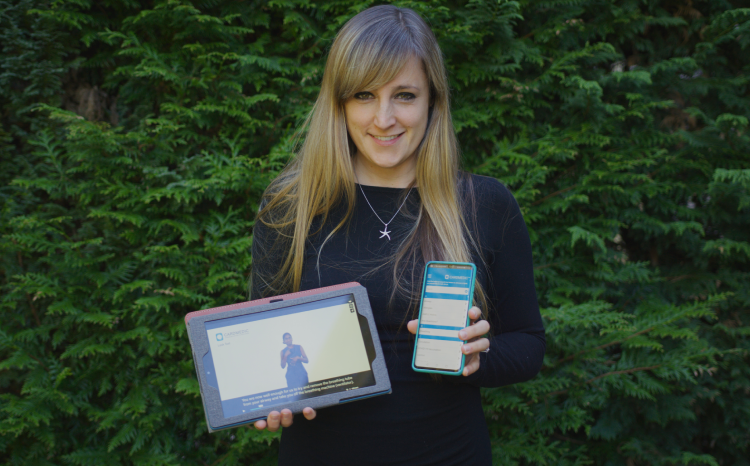Anglia Ruskin University develops AI app to spot TB
- 17 October 2018

A team of scientists from Anglia Ruskin University have developed a mobile phone app that can help spot tuberculosis (TB).
The app uses a regular smartphone camera to digitally capture a “biosensor” with a sputum sample – a mixture of saliva and mucus – and then uses artificial intelligence (AI) to analyse the images detect TB-specific antibodies.
The results can be delivered within a couple of seconds, its creators claim.
A study, published in the journal Expert Systems with Applications, suggested the mobile phone testing system had a 98.4% accuracy rate in detecting tuberculosis.
Alamgir Hossain, director of the university’s IT research institute and co-author of the paper, said: “This system wouldn’t be used instead of seeing a physician but would be a first port of call.
“If the app detects tuberculosis it would instruct the user to contact a medical professional. One major advantage of our app system is that it doesn’t require internet access or any additional hardware to be added to a smartphone.”
Research and development of the new system has been supported by a £129,000 grant, jointly funded by the Newton Fund and Newton-Ungku Omar Fund.
The work also involved academics from the University of East Anglia and Universiti Putra Malaysia.
Developers hope the app will be in use within the next two years.
An increasingly high rate of mobile phone use in developing countries means the technology can reach a wide population.
Hossain added: “Our system is a portable, cheap and accurate automatic TB diagnosis tool which can benefit millions of people, especially in remote locations where few health experts are available.”
The use of AI to analyse medical images has also been applied to eye diseases as well.
In August 2018, Digital Health News reported that researchers had trained a machine learning system to identify eye diseases from scans and to recommend appropriate referrals.
The system was developed by researchers from Moorfields Eye Hospital NHS Foundation Trust, DeepMind and University College London (UCL) and has been designed to identify 10 features of eye diseases from optical coherence tomography (OCT) scans.





